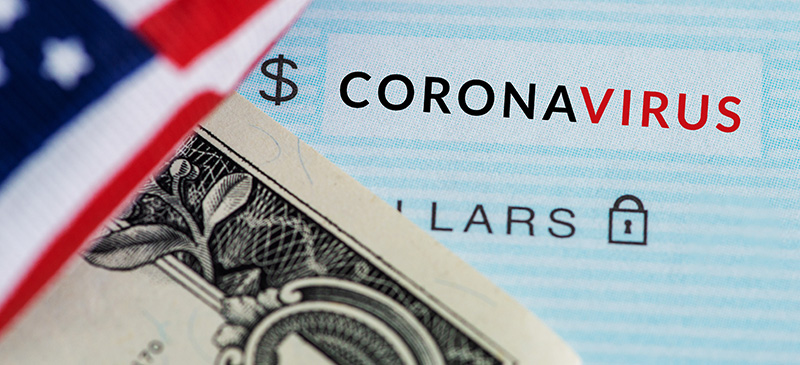
15 Sep Payroll tax deferral options & PPP forgiveness updates
AS OF 8/7/2020
As we have stated in prior newsletters, there have been, and will continue to be, changes to the forgiveness of PPP loan calculations, and other PPP related rules. Below are a few of the major and recent changes, and more changes will be forthcoming as the government attempts to interpret the rules of the PPP loans.
We expect that the forgiveness of PPP loan applications will continue to be delayed by banks as the SBA and US Treasury are still interpreting and changing the rules. Your bank should be in close communication with you now in an effort to keep you updated on the progress of their PPP loan forgiveness application timing and process.
There have been updated and new government orders on stimulus including deferring employee payroll taxes by the employers, as you will read about this below as well.
This newsletter builds on the many prior updates that we have been sending on the small business and individual stimulus that has become available during this COVID-19 crisis. This is another update. If you missed the prior information, you are able to review it.
See our latest Zoom video blog about “Surviving business slow down, business continuation issues as well as negative IRS tax outcomes” by clicking HERE.
SHOULD YOU TAKE ADVANTAGE OF THE PAYROLL TAX DEFERRAL OPTION?
If you’re a small business owner, there’s no doubt you might have a few questions related to the recent announcement from the federal government granting employers the ability to stop withholding a portion of the employee’s responsibility of the payroll tax beginning on Sept. 1, 2020.
And the top question on your mind is probably “do we have to offer this deferral?”
The answer is no.
Each small business will have to determine for itself whether the benefits outweigh the risks when it comes to deferring a portion of their employee’s payroll tax obligation.
It’s important to remember this is simply a temporary delay of the individual’s obligations to pay that tax on wages paid from Sept. 1, 2020 through the end of the calendar year.
New guidelines provided by the federal government outline how those deferred tax payments will be paid during the first four months of 2021, with employees ultimately responsible for making those necessary payments. However, should an employee not be able to pay, the burden could fall on the employer.
As such, if you’re a small business owner, it might not be advantageous for you to provide this deferral given the uncertainty — and potential liability — around this memorandum.
For instance, consider that some employees simply may not be able to make the payment, possibly passing on the responsibility to you, the employer. Likewise, if you’re a small business owner who relies on seasonal workers or operates in an industry with a higher churn on employment, you could get saddled with those payment obligations if some of your workers have moved on.
Given this, offering the payroll tax deferral might not be in your small business’s best interest, and we would advise small business owners to approach this decision with caution, weighing all the pros and cons at work here.
***Do you have the support you need to manage your small business bookkeeping, payroll and taxes? Schedule a 30-minute appointment to speak with one of our local small business advisors — tax and accounting professionals — since 1992.***
Recent Updates to PPP Forgiveness:
The Treasury has provided clarification regarding two aspects of the PPP loan forgiveness calculation. The first relates to the “Treatment of Owners” and the second to “Treatment of Rents”. Below is a summary, but the full version of the release can be found here. Be aware of the changes and limitations noted below, especially related party rents!
Treatment of Owners:
Q: Are any individuals with an ownership stake in a PPP borrower exempt from the application of the PPP owner-employee compensation rule when determining the amount of their compensation that is eligible for loan forgiveness?
A: Yes, owner-employees with less than a 5 percent ownership stake in a C- or S-Corporation are not subject to the owner-employee compensation rule.
Treatment of Rents:
Q: Are amounts attributable to the business operation of a tenant or subtenant of the PPP borrower or, in the context of home-based businesses, household expenses, eligible for forgiveness?
A: No, the amount of loan forgiveness requested for nonpayroll costs may not include any amount attributable to the business operation of a tenant or subtenant of the PPP borrower or, for homebased businesses, household expenses.
Q: Can rent paid between related parties (meaning when a tenant and landlord have common ownership) be treated as qualifying non-payroll costs for PPP loan forgiveness?
A: Yes, but only if (1) the amount of loan forgiveness requested for those payments is no more than the amount of mortgage interest owed on the property during the covered period that is attributable to the space being rented by the business, and (2) the lease and the mortgage were entered into prior to Feb. 15, 2020.
Q: Does “related party” include activities owned by family members?
A: No. Any ownership in common between the business and the property owner is a related party for these purposes.

Sorry, the comment form is closed at this time.